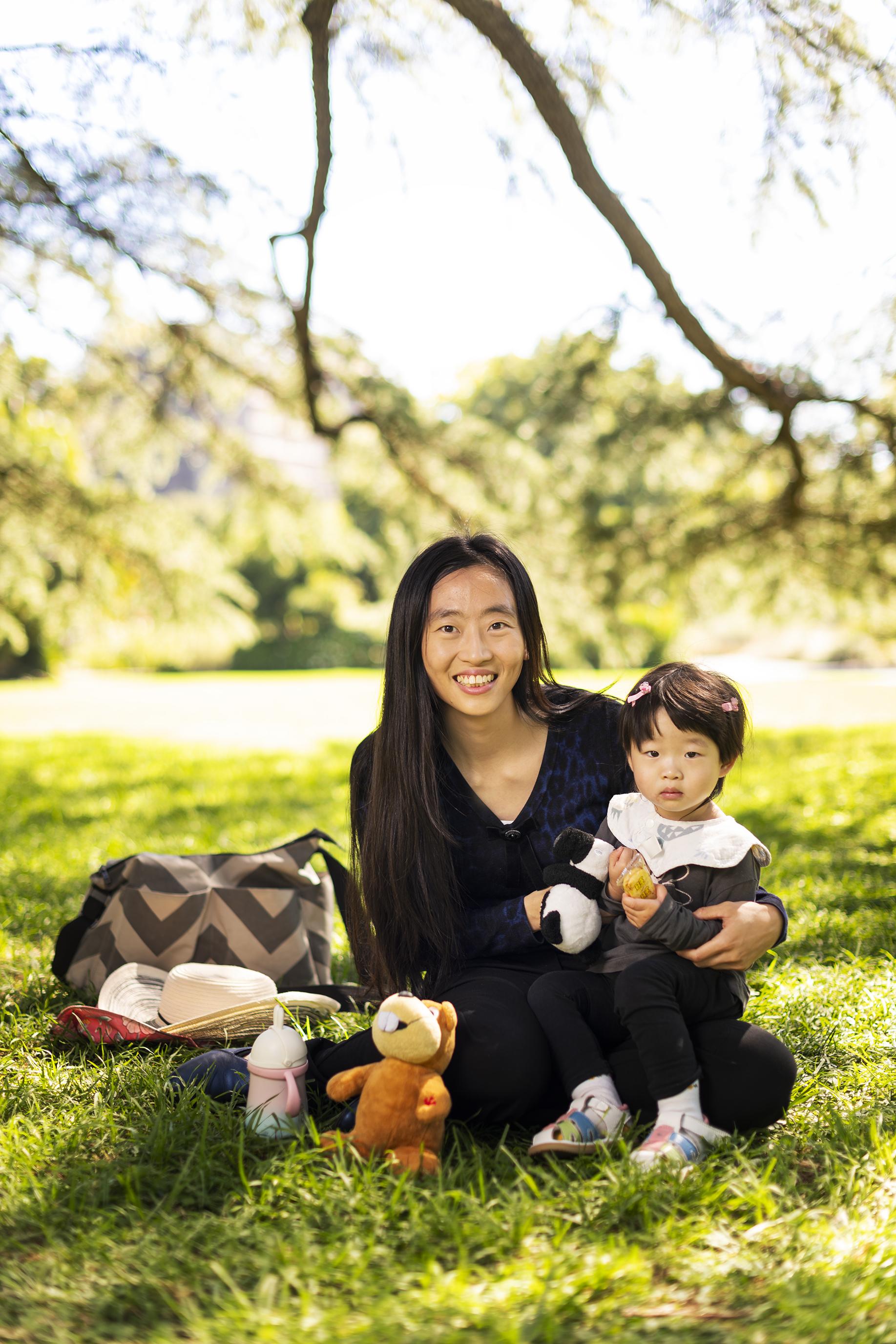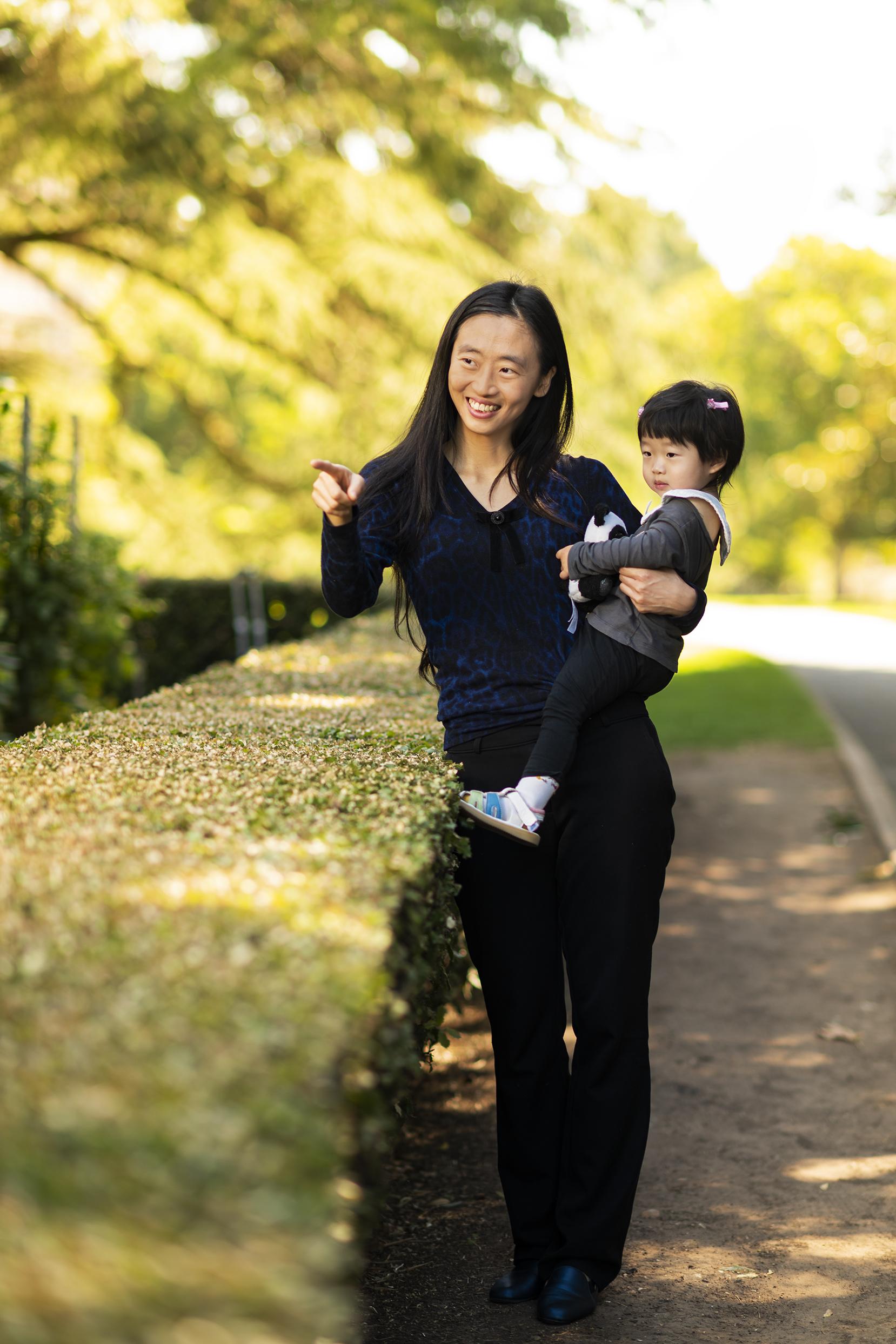Connected Conversations | Jiawen Li
Inspired by her grandfather to pursue a career in engineering and health, Dr Jiawen Li is now continuing her family’s legacy in STEM. Recently named a 2021-22 Superstar of STEM, Jiawen hopes to be a strong female role model for her daughter, Stella.

Please tell us a little bit about yourself.
Hi, my name is Jiawen Li. I use my expertise in optical engineering to build hair-sized endoscopes to explore the nooks and crannies of the body’s organs, leading to early and accurate diagnoses of various diseases.
Growing up, science was part of my daily life. My dad is a biologist and my mum a medical doctor. Our dinner conversations revolved around interesting challenges they faced at work and how they went about solving them. This really influenced me, not only planting the seeds of scientific curiosity but also a love for problem-solving.
What was your first area of study and what drew you to this space?
I was drawn to optical engineering because light is fascinating. It allows us to appreciate colour, to have internet, to see cells, and for early diagnosis of diseases.
What has been your journey to get where you are today?
Due to my beloved grandparent’s death, I have always been interested to apply engineering to study and manage cardiovascular diseases. I got a perfect opportunity when I applied for PhD study in the USA — a full scholarship in biomedical engineering to use light to enable accurate detection of high-risk atherosclerotic plaques.
As I did not learn biology and medicine during my undergraduate study, I have to constantly study new knowledge (e.g. what’s the fundamental biological mechanism, how the disease is developed, how it is diagnosed currently and what’s the unmet need) when embarking on a new research project.
What are you working on now?
Heart attack threatens more than 10 million people’s lives worldwide each year. It often occurs when a blood vessel supplying the heart is suddenly blocked due to the rupture of a high-risk atherosclerotic plaque.
The majority of atherosclerotic plaques in human body are benign while only a minority may become high-risk. So, accurate identification of high-risk plaques is crucial to prevent heart attack and avoid overtreating benign plaques. Despite significant advances in cardiology, the accurate diagnosis of high-risk plaques before they become life-threatening remains a challenge as cardiologists don’t have adequate diagnostic tools.
To addresses this challenge, I have led the development of a series of novel intravascular imaging catheters to detect major characteristics of high-risk plaques. The innovation holds great hope to provide a leap improvement in health outcomes by equipping cardiologists with a solution to accurately diagnose high-risk plaques and prevent heart attacks.
What do you love most about working at the University of Adelaide?
The University of Adelaide provides great opportunities and support to allow us to participate in science communication activities and encourage students to choose and thrive in careers in STEM.
What opportunities do you see for the future?
I am exploring how I can contribute to education (in addition to research, my comfort zone). In particular, I am passionate about teaching cutting-edge medical technologies, to let students understand these technologies and, hopefully, to allow them to make full use of these new promising technologies in clinical practices in future.
What are the top three most defining moments of the past year for you?
- Getting NHMRC Ideas Grant as a CIA, all a sudden switching to leadership role
- Being selected as a Superstar of STEM, from playing small to being a ‘superstar’
- The COVID-19 pandemic: In addition to its impact on my research activities and trips to visit my parents in China, the revenue of my husband’s travelling business was cut nearly 100%. It forces me to be stronger and more supportive.

What inspired you to pursue a career in health?
I was inspired to pursue health when my beloved grandpa died from a stroke, and also my mum being a medical doctor has always been an inspiration to me.
Why would you encourage someone to pursue a career in health?
- Very meaningful and rewarding—with high job satisfaction
- Challenging and exciting
- Because of the career I chose, I enjoy working and my colleagues are very friendly and cooperative, working for the greater good!
What do you like to do in your spare time?
I spend my spare time taking care of my two-year-old daughter, Stella.
How do you relax or switch off?
Watch movies or YouTube videos to let my brain stop thinking about work!
Which destination is at the top of your list of places to go when international travel returns to normal?
The top of my list is Xi’an, China — my hometown and where my parents live. My mum is sick, and I hope to visit her as soon as I can. I’d also like to go to Stuttgart, Germany to visit my collaborators, who have also become good friends.
